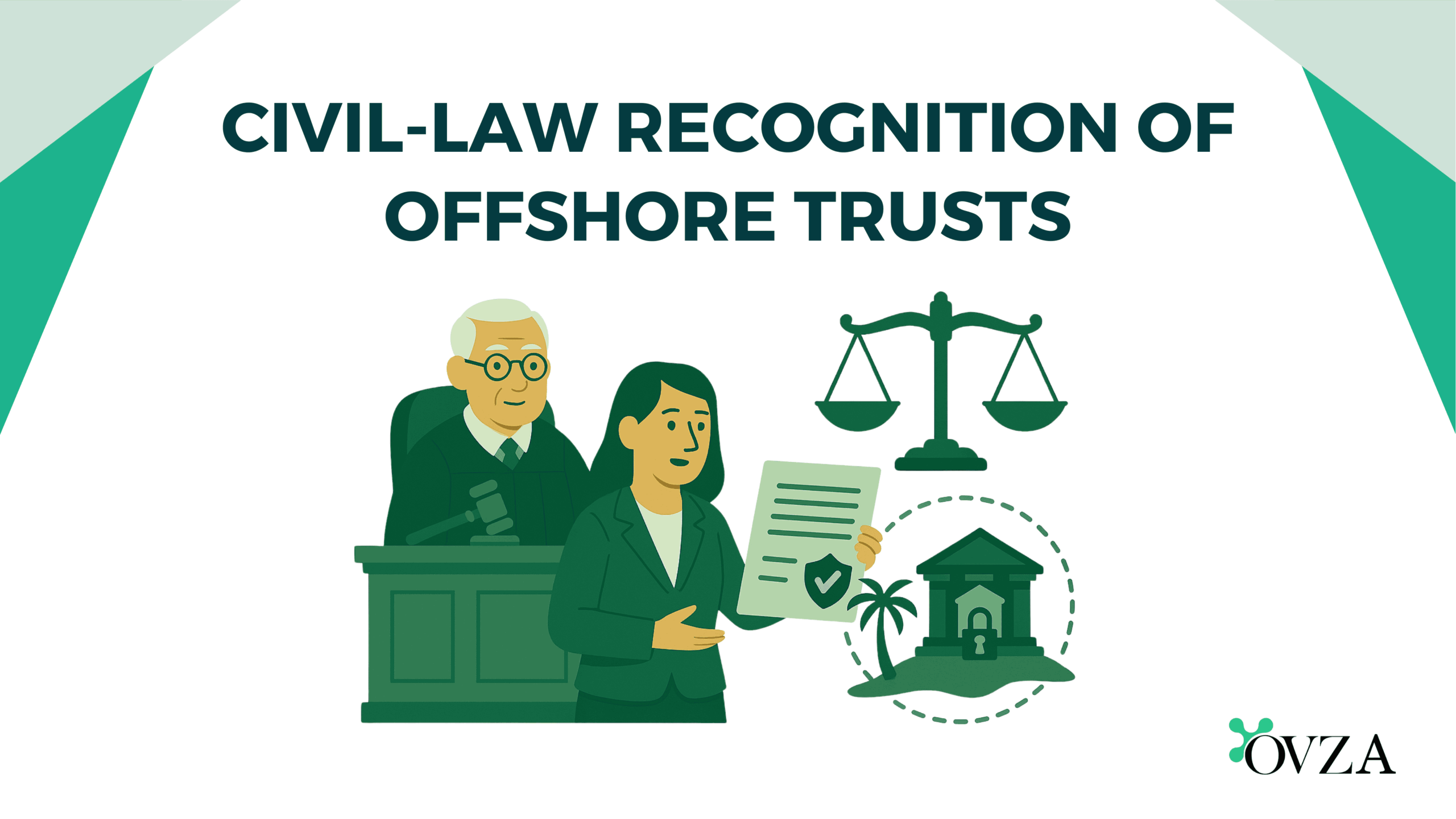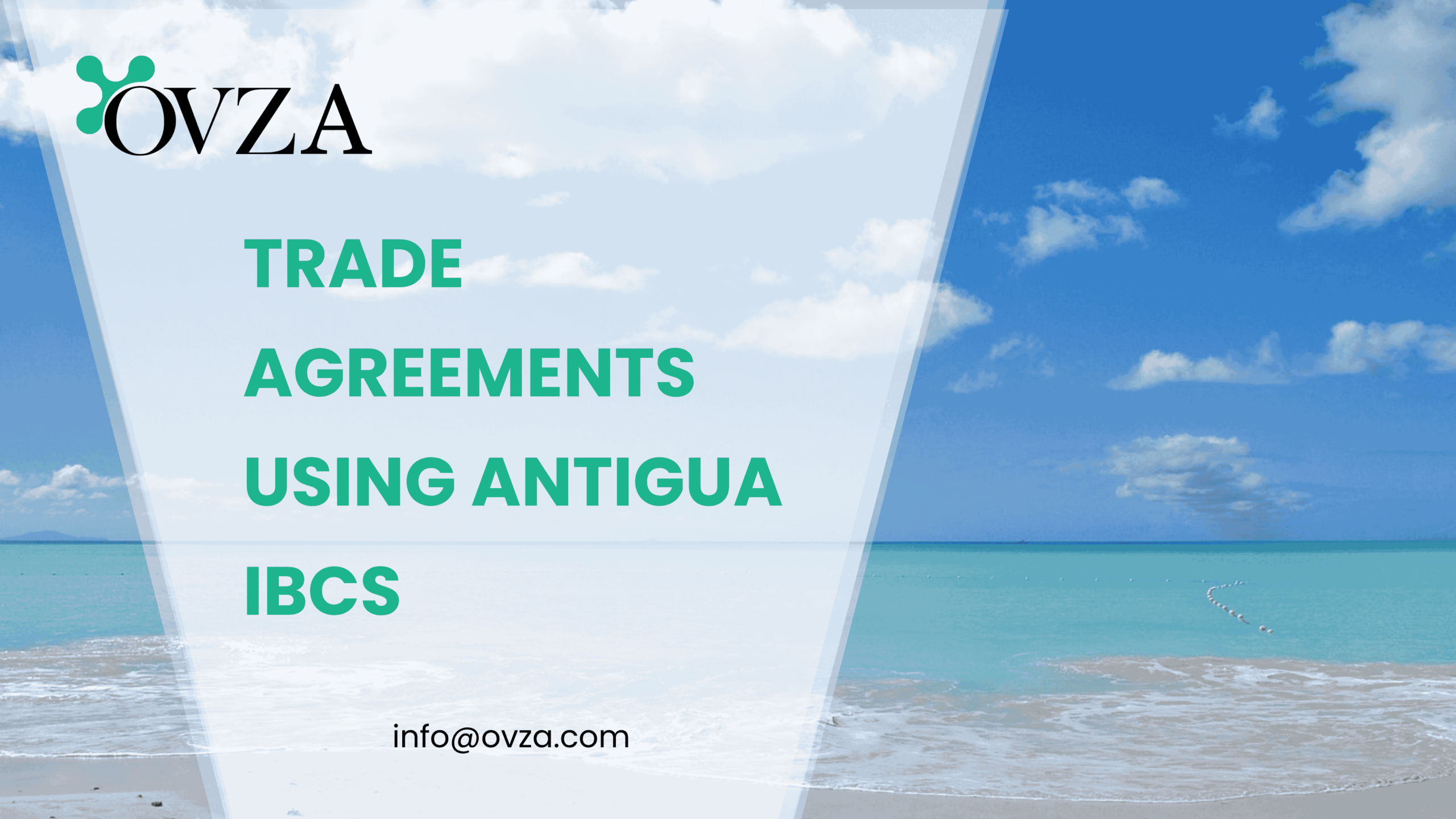Civil-law recognition of offshore trusts – Offshore trust recognition in civil-law jurisdictions depends on private international law, public policy limits, and cross-border enforceability doctrines.The recognition of offshore trusts in civil law jurisdictions presents significant legal complexity due to the fundamental differences between civil and common law systems. Offshore trusts, typically governed by trust law rooted in English legal tradition, rely on the bifurcation of legal and equitable title—a concept largely absent in civil law frameworks. In jurisdictions where the trust is not a native legal institution, questions of enforceability, recognition of the trust relationship, and cross-border asset protection must be evaluated through the lens of private international law and domestic statutory adaptation.
Conflict of Laws and Comparative Legal Doctrines
The most authoritative international instrument addressing this issue is the Hague Convention on the Law Applicable to Trusts and on their Recognition (1985). This Convention establishes rules on the recognition of trusts by jurisdictions that have ratified it and provides guidance on determining the applicable law and scope of recognition. The Convention distinguishes between internal and external trusts, emphasizing that a trust validly constituted under the law designated by the settlor will be recognized by contracting states. Signatories include several civil-law jurisdictions such as Liechtenstein, Switzerland, and Luxembourg, each of which has implemented domestic mechanisms to accommodate foreign trust arrangements.
However, the effectiveness of this framework depends on the ratification and incorporation of the Convention into domestic law, which many civil-law jurisdictions have not undertaken. In non-signatory states, recognition of offshore trusts often depends on general principles of private international law, such as the lex loci celebrationis, lex situs, and the forum’s ordre public doctrine. Where the governing law of the trust is foreign, courts must determine whether the institution of the trust contravenes mandatory rules or public policy of the forum. This is particularly critical in jurisdictions where the indivisibility of property ownership is a constitutional or statutory principle.
In practice, civil-law courts that lack statutory trust law often analyze offshore trusts under analogies drawn from foundations, fiduciary contracts, or agency relationships. For example, in some Latin American and European jurisdictions, the trustee may be treated as a fiduciary agent or administrator with limited discretion and obligations directly enforceable by beneficiaries. This approach reduces the scope of asset protection and privacy typically associated with offshore trusts in common law systems. Civil-law recognition may also be restricted to the economic substance of the relationship rather than its formal legal characterization.
Offshore trust structures frequently used in asset protection, estate planning, or international investment rely on jurisdictions such as the Cayman Islands, BVI, and Jersey, which provide statutory trust law frameworks. The ability to enforce such trusts in civil-law jurisdictions depends on whether local courts are willing to uphold the separation of legal and beneficial ownership and recognize the trustee’s powers in managing assets located within the civil-law state. This tension is amplified in cases involving forced heirship regimes, creditor claims, or marital property disputes, where courts may override the terms of the trust to protect local mandatory rules.
Trust Recognition Mechanisms and Jurisdictional Reforms
Recognition of offshore trusts within civil-law jurisdictions has advanced incrementally through statutory innovation and comparative legal harmonization. Some jurisdictions have moved beyond mere judicial analogy and enacted legislation expressly enabling recognition of foreign trusts. A prominent example is Liechtenstein, which has long recognized trusts through the Trust Enterprise Act, allowing both domestic and foreign trusts to be administered within its legal framework, subject to local registration and disclosure norms. Similarly, in Panama, Law No. 1 of 1984 provides for the creation and administration of trusts under a codified system compatible with international structures, enabling both recognition and enforceability across borders.
In jurisdictions that have not enacted such legislation, trust recognition depends on judicial willingness to apply conflict of laws rules with sufficient flexibility. Courts may apply the trust’s governing law to matters of validity, capacity, and administration, while still subjecting the trust’s effects on local property or family rights to domestic law. This fragmented recognition framework often results in partial enforceability, where certain features of the offshore trust are upheld, but others—such as spendthrift clauses or discretionary distributions—may be limited by local constraints.
Legal scholars have observed that civil-law courts tend to scrutinize offshore trusts more aggressively when domestic creditors or heirs assert rights that would be negated by the trust structure. This issue is particularly pronounced in jurisdictions with forced heirship rules, such as France, Germany, and many Middle Eastern states. In these legal systems, testamentary freedom is restricted by law, and attempts to shield assets from heirs through a foreign trust may be regarded as contrary to public policy. Courts in such states have in some cases set aside transfers to offshore trustees or invalidated trust deeds where they conflict with the protected shares of heirs.
Another domain in which civil-law recognition of offshore trusts is tested involves matrimonial property regimes. Courts may examine whether contributions to the trust represent jointly owned marital assets or whether the trust was used to conceal or divert assets in violation of spousal rights. In such cases, courts may pierce the trust or subject its assets to division under domestic family law, regardless of its offshore origin. These outcomes are informed by a combination of judicial discretion, local legal doctrine, and evolving principles of fairness.
In light of these risks, legal advisers often recommend supplementary strategies when designing offshore trusts with potential exposure to civil-law enforcement. These may include the use of private trust companies, integration with foundation structures, or recourse to jurisdictions that allow for arbitration of trust disputes. The intersection of trust law with international arbitration has become a focus of emerging legal practice, especially where parties seek to avoid forum conflicts and secure neutral enforcement environments.
The Role of Bilateral Agreements and Practical Enforcement Limits
In practical terms, the cross-border recognition of offshore trusts by civil-law jurisdictions often hinges on the presence of bilateral treaties, mutual legal assistance agreements, and regional conventions. For example, within the European Union, although no uniform trust law exists, the recognition of trust-like arrangements may be facilitated through application of the Rome I and Rome II Regulations, which govern applicable law in contractual and non-contractual obligations. However, these instruments do not override public policy reservations, and enforcement of offshore trust provisions remains vulnerable where local norms prohibit fragmentation of ownership or demand transparency incompatible with trust confidentiality.
The practical enforcement of trust-based rights in civil-law jurisdictions may also be subject to procedural limitations. Courts may lack familiarity with foreign trust instruments, or may interpret trustee powers and beneficiary rights narrowly due to the absence of equitable doctrines. This underscores the importance of robust documentation, compliance with formalities such as notarization and legalization, and clear articulation of governing law and jurisdiction clauses in the trust deed. It is not uncommon for civil-law courts to require expert testimony or comparative legal analysis to interpret and apply foreign trust law, especially in litigation over ownership or succession claims.
Asset protection strategies premised on offshore trusts must be evaluated with care in light of civil-law constraints. While trusts remain an effective tool for managing wealth, securing succession, and achieving privacy in common law contexts, their enforceability in civil-law environments is conditional and often contested. The use of alternative legal vehicles such as foundations or hybrid entities may be more compatible in certain jurisdictions, offering similar benefits with fewer legal obstacles.
The evolution of international legal cooperation and the rising demand for transparency and beneficial ownership disclosure further challenge the opacity traditionally associated with offshore trusts. As civil-law systems modernize their private international law frameworks and adopt global standards such as those set forth by the Financial Action Task Force (FATF), the capacity of foreign trusts to resist domestic enforcement efforts will continue to diminish. This trend necessitates a shift from formalistic offshore structuring to substance-based legal planning that accounts for jurisdictional recognition risks and emerging enforcement doctrines.
Conclusion
The recognition of offshore trusts by civil-law jurisdictions remains a contested and evolving legal issue, shaped by conflict of laws principles, treaty commitments, and domestic policy considerations. While the Hague Trusts Convention and certain legislative reforms offer limited pathways to enforceability, the fundamental structural divergence between common and civil law continues to constrain full recognition. Trusts governed by offshore law may be partially acknowledged, recharacterized, or disregarded entirely depending on the legal framework and judicial approach of the civil-law forum. Effective legal planning requires not only familiarity with offshore trust law but also a rigorous understanding of the limits of recognition in non-trust jurisdictions and the practical constraints of cross-border enforcement.
Disclaimer: The information provided on this website is intended for general reference and educational purposes only. While OVZA makes every effort to ensure accuracy and timeliness, the content should not be considered legal, financial, or tax advice.










